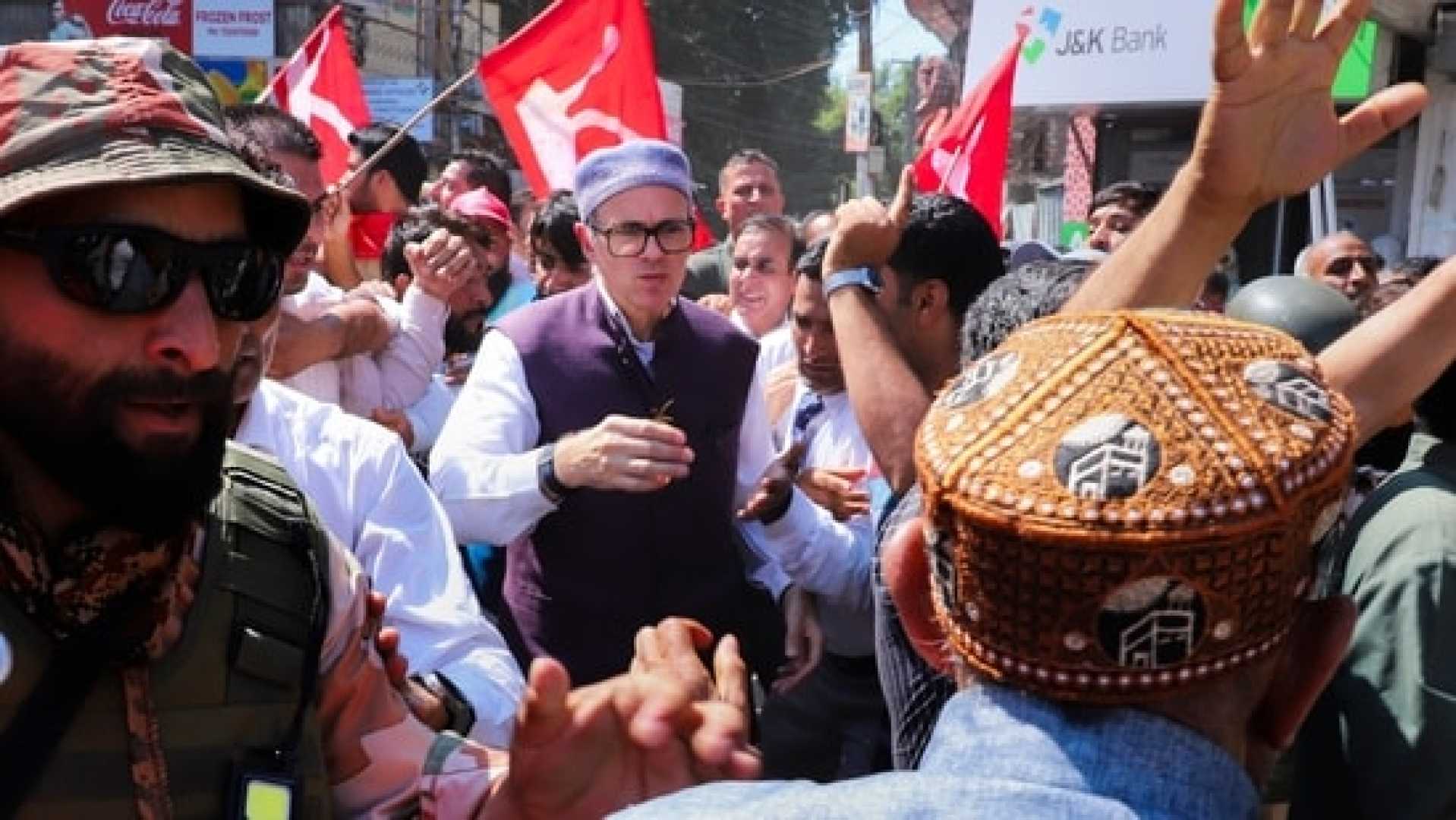Politics
Omar Abdullah Files Nominations for Jammu and Kashmir Assembly Elections

Omar Abdullah, vice president of the National Conference (NC), has formally filed his nomination papers for the upcoming Jammu and Kashmir Assembly elections. As part of his electoral strategy, he has opted to contest from two constituencies: Ganderbal and Budgam.
On September 5, 2024, Abdullah registered his candidacy from Ganderbal, a traditional stronghold for the NC, and subsequently filed additional papers for Budgam. He stated that competing in two constituencies is indicative of the party’s strength and the confidence of his colleagues in his leadership.
In contrast to Abdullah’s assertions, political opponents, including representatives from the People's Democratic Party (PDP), labeled this strategy as indicative of a lack of confidence in his electoral chances. PDP leader Ghulam Nabi Lone publicly criticized Abdullah’s approach, suggesting it reflects insecurity regarding voter support.
In the Budgam constituency, Abdullah expressed optimism about the NC’s prospects, emphasizing that there is a favorable wave towards the NC throughout Jammu and Kashmir. He further articulated that the upcoming assembly will shed light on the decisions made against the interests of the region’s population over the past five years.
Accompanying Abdullah in the nomination filings were Tariq Hameed Karra, president of the Congress in Jammu and Kashmir, and Ravinder Raina, president of the BJP in Jammu and Kashmir. Raina, after filing his candidacy for the Nowshera seat, claimed that there is a strong wave of support for the BJP across the union territory.
Additionally, Sarjan Ahmad Barkati, a jailed separatist cleric, has also filed his nominations from the Ganderbal and Beerwah constituencies. Barkati’s attempt to contest the elections comes after a rejection of his candidacy in Zainapora. His daughter, Sugra Barkati, has publicly supported his campaign, urging voters to back him.
The elections for the 90-seat assembly in Jammu and Kashmir are scheduled to take place in three phases, with voting occurring on September 18, September 25, and October 1, 2024. This electoral process marks the first since the abrogation of Article 370 and the bifurcation of Jammu and Kashmir into union territories.












